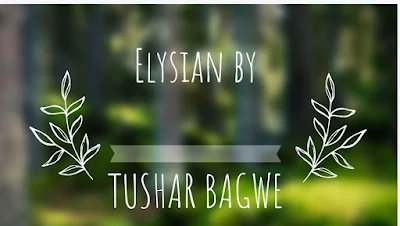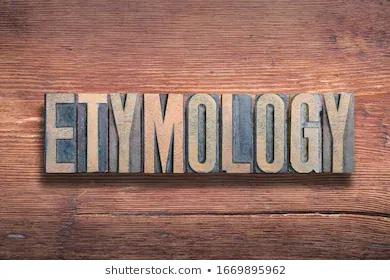Unit 2.2 Indian Weavers Sarojini Naidu
Weavers weaving at break of day,
Why do you weave a garment so gay?
Blue as the wing of a halcyon wild,
We weave the robes of a new-born child.
Weavers, weaving at fall of night,
Why do you weave a garment so bright?
Like the plumes of a peacock, purple and green,
We weave the marriage-veils of a queen.
Weavers, weaving solemn and still,
What do you weave in the moonlight chill......?
White as a feather and white as a cloud,
We weave a dead man’s funeral shroud.
halcyon - Kingfisher, a bird which has bright, colourful plumes.
Plumes - Soft feathers.
Shroud - a cloth in which a dead person is wrapped.
Introduction
Indian Weavers by Sarojini Naidu is a short poem consisting of three stanzas having four lines each. The poet talks about three types of dresses that the Indian Weavers weave at three particular times of the day. Metaphorically each time and the dress weaved in that time symbolises a particular stage of life. The poem has the rhyme scheme AABB. The poet uses a number of literary devices to express her ideas like smile, imagery, metaphor etc. The poem consists of a discussion between the poet and the weavers; the poet asks the weavers and the latter reply.
Naidu’s writing style
Traditional and simple, with use of such literary devices as imagery and alliteration.
Indian Weavers Poem Summary
Stanza 1: Infancy ( Childhood)
In the first stanza, the poet asks the weavers why they are weaving clothes early in the morning which seem to be quite beautiful and charming (gay). The clothes are blue as the wing of a halcyon wild. Halcyon is the other name of the kingfisher.
The wings of the kingfisher are bright blue in colour. In addition blue colour also symbolises loyalty. The blue colour thus symbolises something beautiful and precious. Hence, in this stanza, the clothes weaved by the weavers are quite special and this is why the poet is curious to know about them.
The Indian Weavers reply, we weave the robes of a new-born child i.e. they are weaving the beautiful dress for a young one who has just came to the world.
In this stanza, a number of images are used to describe the first stage of human life like break of day, garments so gay, & blue as the wing of halcyon wild. This stage is full of happiness, freshness, hope, beauty etc. There is no sorrow in the stage.
Stanza 2: Adulthood
In the second stanza, the poet again meets the Indian Weavers, this time during the fall of night. It probably refers to the evening or dusk time when the sun sets and darkness paves the way. Moreover, it is also the time during which most of the Indian marriages take place. The poet questions the weavers why they weave a garment so bright like the plumes of a peacock, purple and green. The garment at this time is bright and full of colours like feathers of peacock unlike the one colour-blue (during the morning time).The weavers reply that they weave the marriage-veils of a queen, thus referring to the second or in other words adult stage of the life. During this stage, humans are quite active. They love each other, get married and quest for a better and prosperous life. The colours purple and green symbolise sorrow and happiness or struggle and ease in one’s adult stage and these all colours or ups and downs of life make the adulthood bright.
Stanza 3: Death
In the final stanza, the poet finds the weavers solemn and still i.e. they are quite sorrowful, grieved and silent. They are weaving something weird in the moonlight chilli.e. in the dead of the night which is White as a feather and white as a cloud, i.e. colourless, lifeless.
As the poet fails to figure out what it is (the cloth) and why they are sorrowful and silent, she asks them what are they weaving rather than why are they weaving. They reply that they are weaving shroud (cloth put on the dead body) for a dead person.
Thus the 3rd and the final stage is death which is emotionless and lifeless like a white cloud or feather. In this way, the life which begins with life, joy, hope etc ends with sorrow and grief.
Key Points
Indian Weavers by Sarojini Naidu sums up the life of human beings on earth in three main stages by using symbols like clothes and times of the day. The journey of life begins with one colour-blue which means joy and happiness. It continues with the addition of a number of colours-green and purple which means sorrows also enter into life along with happiness. Life is more active in this stage than in the first stage. In the final stanza, all the colours vanish away and single colour-white remains which means emotions are connected with life and when the person dies, emotions also die.
 |
SOURCE: WIKIPEDIA AND MEDIA |
Q.Read the given extract and do all the activities that follow it.
A1. Choose : (02)
Select the most appropriate option and complete the statement.
1) The weavers are weaving…………………………………. In the early morning.
a)A bright blue cloth b) a dull grey cloth
c)A soft white cloth d) a red coloured veil.
2) …………………………………. is being prepared by the weavers in the evening.
a)Dress of the weavers
b) dress of a new-born child
c) The queen’s marriage veil
d) the robe of a child.
3) The poet is addressing………………………………………………
a) Weavers b) children
c) queen d) all the above
4) The three stages of life mentioned in the poem are.
a) Infancy, childhood and senility.
b) childhood, adulthood and senility.
c) Infancy, youth and death
d) infancy, adolescence, middle age.
A1. True or false : (02)
State whether the following statements are True or false.
a) The weavers are weaving marriage veils of a queen in the morning. (F)
b) The poem represents three events of human life birth, adulthood and death. (T)
c) The Weavers are grieved while weaving in the moonlight. (T)
d) The colour of clothes of a new- born child is just like the wing of a halcyon bird.(T)
A1. Complete the diagram : (02)
Complete the diagram by writing down the colour imagery /comparisons
made by the poet about weaving at different times in the poem.
A2. Complete the table :. (02)
Complete the table by writing down the necessary details.
Time of the day Words phrases
Weaver’s work
A2. Fill in the blanks : (02)
The poem reveals three phases of life. Fill in the blanks with feelings and colours appropriate to the Phases of life
New-born childhood Youth/adulthood Old age/death
 |
(This is a practice Activity for students)
A2. Describe : (02)
Describe the various products made by the weavers as mentioned in the poem.
The weavers are weaving the robes of a new- born child using blue colour like the wings of a halcyon child. They are also weaving the marriage-veils of a queen like the feathers of peacock of purple and green colour. The weavers are working silently and preparing a white cloth for the funeral of a dead man.
A2. Infer : (02)
Express your own views and opinions /feelings from the weaver’s point of view and complete the following activity.
A3. Personal Response: (02)
Suggest some steps or measures to improve the conditions of the Indian Weavers in about Fifty words.
A3. Personal Response : (02)
Although the weavers are using different beautiful colours to weave their own lives have become colourless. Share your views on this in about fifty words.
A3. Personal Response : (02)
"Government should promote and encourage small scale industries/cottage - Industries "Write your views on this in about Fifty words.
A3. Personal Response : (02)
Write down various career opportunities available in small scale industries in about Fifty words with suitable examples.
A3. Personal Response : (02)
The dignity of labour must be maintained and reasonable wages should be given to the labourers in India.Write with probable solutions in about Fifty words.
A4. Poetic Devices : (02)
Complete the following table by writing down the figure of speech with explanation before the line.
A4. Poetic Devices : (02)
“Weavers, weaving at break of day,
Why do you weave a garment so gay?
Name and explain the figure of speech used in the above line and find one similar figure of speech used in the extract.
The figure of speech used in the above line is called as an ALLITERATION because the sound “w’ is repeated in a pleasant manner.
Other similar examples are
“Weavers weaving at fall of night,
Why do you weave a garment so bright?” And
“Weavers weaving solemn and still
What do you weave in the moonlight chill?”
A4. Poetic Devices : (02)
Write down the Rhyme scheme used in the poem and also note down the rhyming pair of words and complete the table.
A5. Poetic Creativity : (02)
Compose a poem on Indian weaver of 4 lines in continuation of the following.
He weaves ……………………………………..
He sweats………………………………………
He laughs………………………………………
He weeps………………………………………..
A5. Poetic Creativity : (02)
Weavers, weaving at break of day
Why do you weave a garment so gay?
Blue as the wing of a halcyon wild.
We weave the robes of a new-born wild
Replace the underlined lines by composing two lines of your own.
A5. Poetic Creativity : (02)
Imagine you are an Indian weaver. Compose 4 lines of your own expressing the plight / pathetic condition.
















































